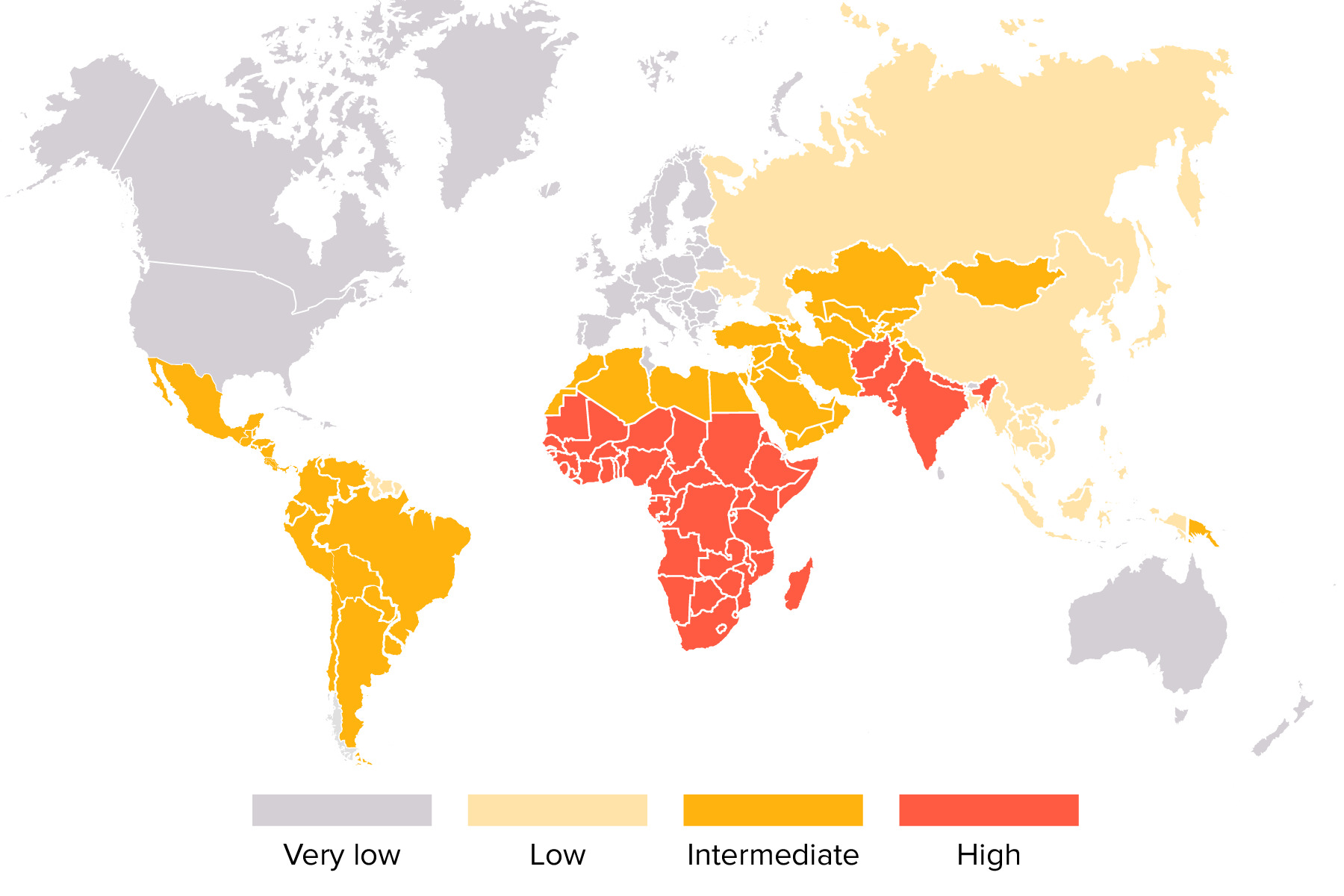Playlist
Show Playlist
Hide Playlist
Hepatitis A
-
Slides GIP Viral Hepatitis.pdf
-
Reference List Pathology.pdf
-
Download Lecture Overview
00:01 Okay, let's go in order. 00:04 Hepatitis A is a single stranded RNA hepatovirus. 00:08 The transmission route is fecal-oral, doesn't sound very pleasant, but that's what it is, contaminated food or water that has come from feces. 00:19 Typically, in every case, it is a self limited to disease. 00:24 In most cases, it comes and goes in about two months, and it has a very low morbidity mortality, much less than 1%. 00:33 And when it does have mortality or morbidity, it's in the adult population. 00:39 There is no carrier state for all intensive purposes, almost everybody, virtually everyone who gets infected with hepatitis A will develop a good immune response to it and clear it. 00:51 New infections are characterized by having IgM against the hepatitis A virus or HIV. 00:58 If you've had a prior infection, a long time ago, or a couple months ago, then you will have IgG. 01:04 So that's one way that we can tell whether you have a brand new hepatitis A infection, or you've had one in the past. 01:11 Vaccines are available because it has such a low risk of causing mortality or morbidity. 01:18 And patients do really well with this. 01:21 Vaccines are not typically administered. 01:25 This schematic we're gonna see in some form over and over again, for all five of the different hepatitis viruses. 01:32 And this is just showing you from the point of infection, which is always going to be times zero, through the subsequent course, when the various manifestations occur. 01:44 So for example, in Hepatitis A infection, we can detect relatively early on RNA, either in the feces or in the serum indicating that we have an active infection. 01:56 That amount of virus actually precedes any injury to the hepatocytes. 02:01 That's when we see a relative spike in ALT and AST and other enzymes that the hepatocytes normally make. 02:10 That will be transient over the course of maybe a month or more. 02:15 That goes up and comes down as the body makes a specific immune response. 02:19 And it begins with a T-cell response, but then it's also coordinated with development of IgM antibodies, and eventually a maturation of the response to give you a chronic IgG serology. 02:32 So that you will have now chronic protection forever and ever and ever, to any subsequent exposure in Hepatitis A.
About the Lecture
The lecture Hepatitis A by Richard Mitchell, MD, PhD is from the course Disorders of the Hepatobiliary System.
Included Quiz Questions
What is the structure of hepatitis A?
- Single-stranded RNA
- Single-stranded DNA
- Double-stranded RNA
- Double-stranded DNA
- Triple-stranded DNA
What is the typical progression of hepatitis A?
- Self-limited, lasting < 2 months
- Self-limited, lasting < 12 months
- Self-limited, lasting > 12 months
- Chronic, incurable
- Chronic, curable
Customer reviews
5,0 of 5 stars
| 5 Stars |
|
5 |
| 4 Stars |
|
0 |
| 3 Stars |
|
0 |
| 2 Stars |
|
0 |
| 1 Star |
|
0 |




